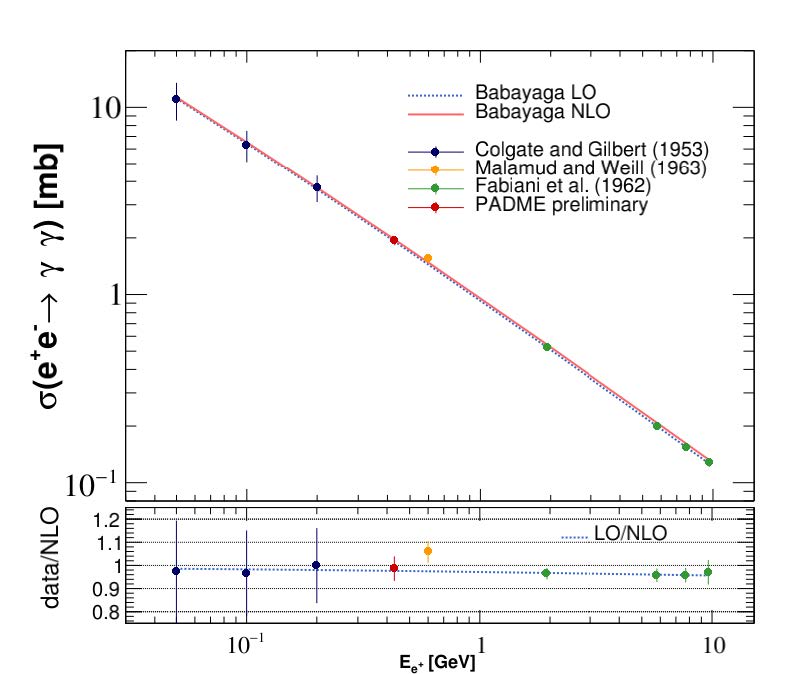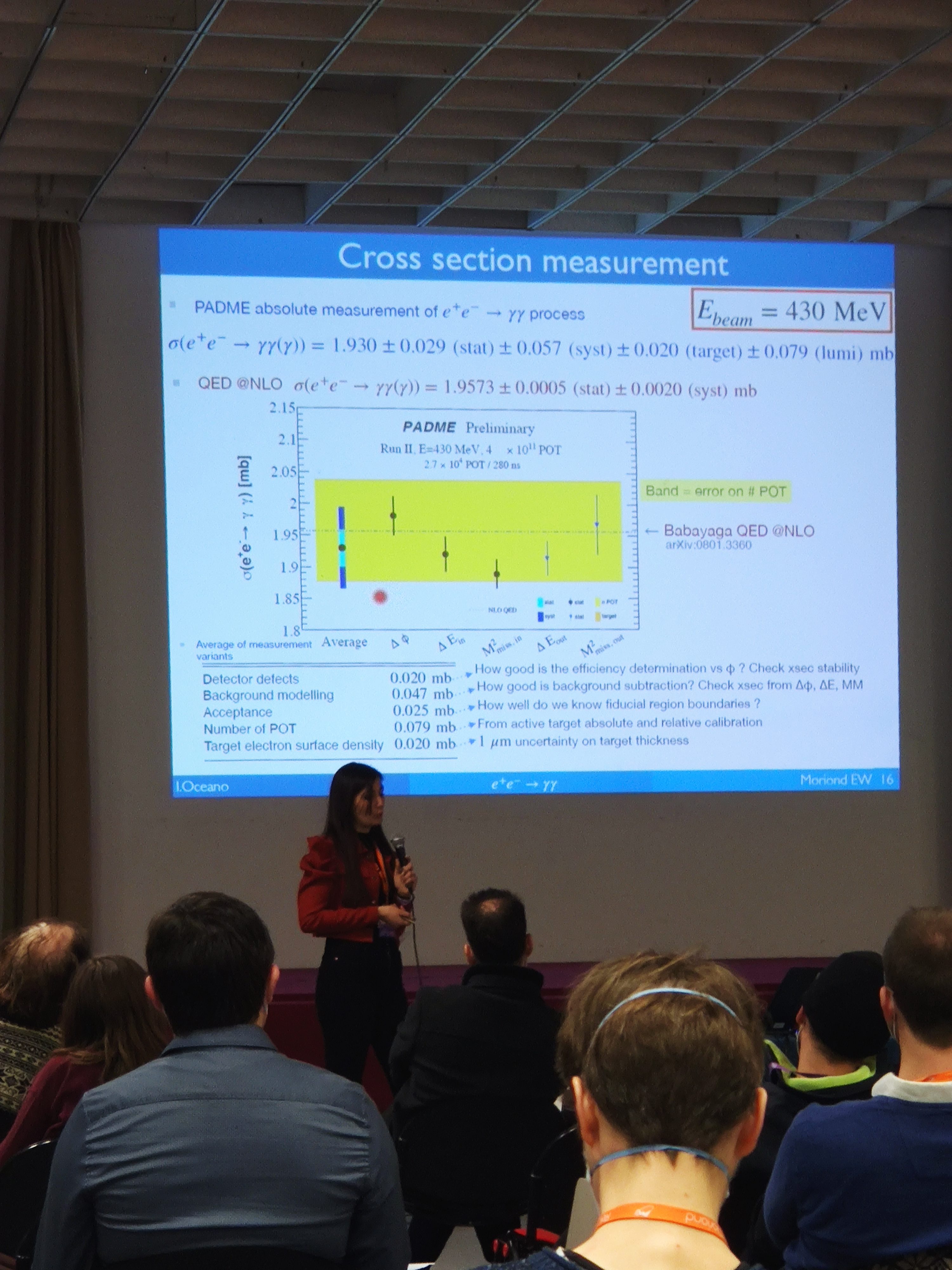 On March the 15th 2022, the PADME collaboration presented its first relevant scientific result. It consists in the measurement, with an unprecedent precision in the GeV energy range, of the cross-section of the Standard Model process:
On March the 15th 2022, the PADME collaboration presented its first relevant scientific result. It consists in the measurement, with an unprecedent precision in the GeV energy range, of the cross-section of the Standard Model process:
e+ e–→γγ.
PADME (Positron Annihilation Into Dark Matter Experiment) is the LNF experiment devoted to the search of dark matter and in particular of the dark photon. Some theoretical models foresee the existence of a new force linking our world to that of dark matter. This so called “fifth force” would be associated to a mediator, named the dark photon, a particle like the ordinary photon mediating the electromagnetic force, but having a non-zero mass.
In the two data taking periods that PADME had in 2019 and 2020, about half of the full statistics necessary for the measurement was collected. The analysis of this huge amount of data allowed mainly to tune the detector.
Nevertheless, after the calibration and equalization phase, to test the capability of the apparatus, it started the study of the most frequent annihilation channel that produce 2 photons in the final state.
Quantum Electrodynamics allows to calculate with high precision, the cross-section of this process and comparing the experimental result with the theoretical prevision it is possible to establish limits to the existence of the particles of the dark sector.

The presentation of this result took place at the Dark Matter session of the prestigious international conference Moriond Electroweak Interactions & Unified Theories taking place in La Thuile from 12-19 March 2022. This was the 56th edition of this meeting where every year are invited to present their results experiments/scientists who achieved outstanding goals.
The spokesperson of the experiment, prof. Mauro Raggi of Rome Sapienza University, commented this event saying: “The whole PADME collaboration considered a great honor receiving the invitation to present the work done to the Moriond conference. We discussed who would have been the best speaker of the talk and in the end we all agreed to appoint a young researcher from Lecce group, Isabella Oceano. She completed this year her doctoral work on this measurement, and now is on the way to start a new career in research in Germany. This acknowledgment seemed ideal to express Isabella our appreciation for her reliability and to wish her the best for the future”.
 INFN-LNF Laboratori Nazionali di Frascati
INFN-LNF Laboratori Nazionali di Frascati